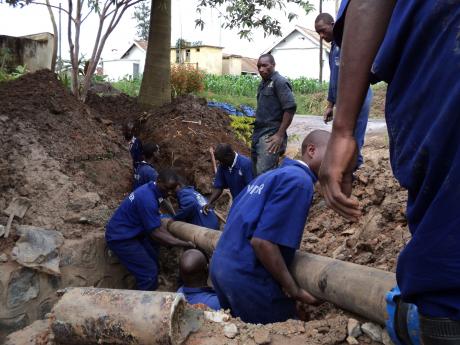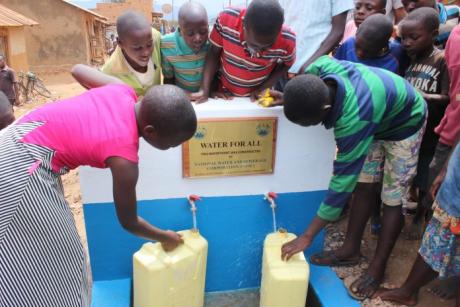For any country to develop, water and sanitation is part of the prospective cardinal. Just like there is a saying that “water is life”, indeed without access to clean water, there can be no life! Water is a common factor in delivering a successful common development agenda among communities.


That is why it is important to have much clean and safe water available to support life and other aspects. Across the world, amidst shortages of clean water, the most affected gender is female. It is they that go out to look for clean water for domestic use from cooking food to washing clothes and bathing children. According to a report from UNICEF and the World Health Organization, 2.1 billion people around the world face that challenge every day. And the task of providing water for households falls disproportionately to women and girls, especially in rural areas
According to reports, women in rural areas are most affected just because they are the most domestic users of water. For the case of areas with limited water facilities, women walk for long distances in search of clean water.
Cattle corridors like Karamoja, parts of Teso, Nakasongola, Insingiro and others are the most water stressed areas. A majority of people are affected but that does not mean government of Uganda through National Water and Sewerage Corporation is sleeping.
Due to this and many more challenges faced by Ugandans in accessing clean water, government has come up with strategies to improve water access to all Ugandans. Among others include, increasing funding for the water sector with the aim of improving access to safe and clean drinking water.
The director of water development at the ministry of water and environment, Eng. Aaron Kabirizi says as part of the government plans, the ministry has planned to channel water from areas where it flows in abundance to the water stressed areas. In so doing, water will be got from nearby rivers while in other areas government is building dams to store water during rainy season for use during the dry season.
Recently, President Museveni commissioned a number of big water projects implemented in various districts across the country. The Ngora-Kumi water project expected to benefit thousands of people in the two districts is a big boost to the livelihoods of locals in Teso. In Karamoja sub region, government plans to construct at least one dam to every sub county. This will provide water for both domestic and animal use.
Globally, 663 million people still lack access to safe drinking water sources on which a healthy, productive life depends. As a country, Uganda’s government is doing all it takes to increase the number of people with access to basic drinking water services, improving the ability of education and health facilities to provide and manage water services adequately in schools and communities.
As per now, safe water coverage in Uganda is at 68% in rural communities and 69% in urban areas as of June 2018. Statistics show that 80% of Uganda’s estimated 40 million people live in rural areas. This means that 32% of people in rural areas cannot access clean water. Meanwhile, access to clean water in the municipalities stand at 84% with government having plans to make it 100% by the year 2021.
According to NWSC, over 12,000 villages near municipalities and urban centers are set to receive clean water in the country. In the past, locals would move for long distances in search for water but due to prevailing peace, security and development in the country, government has been able to reduce the gap. Many communities now enjoy clean water from boreholes, taps, water storage facilities and many others.
Sanitation levels such as pit latrine coverage have also improved to a national average of 74%. Government’s focus on access to safe water and sanitation will continue with the aim of increasing piped water coverage in both urban and rural areas. In the same manner, government is also planning to expand irrigation schemes to most parts of the country to boost agricultural production.
In a nutshell, areas with safe and clean water should take responsibility of ensuring sustainable use of these facilities well aware that government and other partners are doing all it takes to provide clean water to all Ugandans across the country.
The writer is a communications assistant at Government Citizen Interaction Centre (GCIC), Ministry of ICT & National Guidance.






Comments